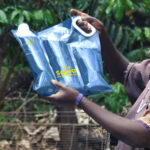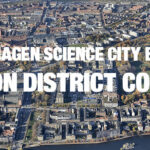New network to boost gut microorganism innovation
Badly balanced microorganisms in the human intestine have been linked to several deadly diseases. Untangling connections from fungi, bacteria and viruses in the gut to disorders in the rest of the body has become something of a Danish specialty, and now a number of Greater Copenhagen area experts in this so-called “micro-biome” have initiated a network to strengthen education, research and innovation within the field. A key-partner in the network is situated in Copenhagen Science City. By Jes Andersen.
Spanning universities, hospitals and companies
The network, Copenhagen Gut Microbiome Hub, is the brainchild of researchers from Copenhagen Science City-partner University of Copenhagen but includes leading researchers from Copenhagen area hospitals Herlev and Gentofte, as well as the Danish technical university, DTU. As soon as 2024 the network expects to invite company researchers as well.
Copenhagen Gut Microbiome Hub was initiated by the UCPH researchers Associate Professor Henrik Munch Roager, Department of Nutrition, Exercise and Sports, (NEXS) and Professor Dennis Sandris Nielsen, Department of Food Science and the hub is likely to make the innovation district Copenhagen Science City even more of a global life science hotspot.
Our department is located in an innovation district which is increasingly a home to world-leading life science researchers and their research infrastructure, to hospitals where they can test new solutions and to start-up communities specifically servicing life science start-ups. All of these qualities attract life science companies, and at NEXS we are proud to add this new initiative to the districts’ offerings. We especially look forward to seeing the research inspire a new class of life science companies to join us in Copenhagen Science City”: Nikolai Baastrup Nordsborg, Head of Department, Department for Nutrition, Exercise and Sports, University of Copenhagen.
Forming the basis of novel therapies
Companies will be able to solve many problems with microbiome insights. Links from gut-microbiome to obesity and diabetes will not surprise, but evidence is growing for links even to age-related ailments such as osteoporosis, Alzheimer’s- and Parkinson’s diseases, and there are already companies working on microbiome-based drugs against these. The University of Copenhagen spinout GutCRINE, for example, promises to target all three. They recently raised seed funding to develop their invention; a brand-new class of pharmaceuticals they call pharmabiotics.
Building on decades of excellence
In order to build on decades of excellent research, the network aims to arrange seminars and conferences and to develop new educational activities at the highest possible level. With this, they hope to stimulate increasing numbers of collaborative research and development initiatives spanning universities, hospitals, and companies.
About Copenhagen Science City
Copenhagen Science City is a two square kilometre innovation district in the heart of the Danish capital. Here, University of Copenhagen, University Hospital Rigshospitalet and University College Copenhagen are working together with start-up community Symbion to create optimal conditions for students and researchers dreaming of starting a business, and for companies who need to develop, validate or test their products in collaboration with the knowledge institutions. Significant portions of the university’s research and training in science and health and medical sciences are located in the innovation district.




